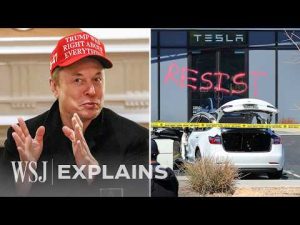In a spirited discussion that could only be described as a raucous episode of political banter, a conservative news channel recently dissected a series of comments made about government, individualism, and the sanctity of hard-earned money. The mood was as charged as a summer barbecue, and just like at those gatherings, opinions were flying—some more grilled than others!
The focus of their conversation was a notable figure in the realm of American politics, who seemed to embody the rift between the traditional GOP values and the rising tide of more radical shifts in public opinion. The panelists suggested that this particular politician appeared to be grappling with the current political landscape, one where he felt surrounded by individuals who don’t share the old school ‘go along to get along’ mentality. The eyebrows were raised and laughter erupted when the topic turned to how shocked he seemed to be at the presence of new, more hardline Republican figures. It painted a picture of a once snug boys’ club in Washington, now facing a sudden influx of new members with fresh ideas and dare they say, a rebellious spirit.
The speakers drew parallels between this new wave of conservatism and the founding ideals of America. One panelist humorously recalled Thomas Jefferson’s idea that “that government is best which governs least.” The conversation bounced around the concept of government as an impediment to entrepreneurship and innovation—like a pesky fly buzzing around a picnic. They painted the picture of wealthy individuals—those who built their fortunes from the ground up—demanding autonomy from a government they see as overreaching and taxing too heavily.
In a quintessential moment of banter, the speakers brought in references that likely made the founding fathers shudder. They likened the sentiments to Marxist principles, joking that the government should not view citizens as mere cash cows to be milked for taxes. The reminder of President Obama’s infamous “You didn’t build that” comment hung in the air like a dark cloud at a sunny picnic. The panel, filled with both humor and gravity, emphasized that many wealthy individuals do not believe in the government’s right to dictate how they operate their businesses or handle their finances.
Ultimately, the conversation captured the essence of a larger cultural battle. It is a tug-of-war between those who believe in a more accountable, less intrusive government versus those who feel secure within its frameworks. Curiously enough, the hosts found unity among their conservative brethren, emphasizing that despite the differences, they all adore the idea of limited governmental control. The zest for a return to foundational values resonated in their discussions, giving a glimpse of hope to some and a shake of the head to others.
In the end, it was a reminder that political discourse, while sometimes messy and heated, is an essential part of the American fabric. Whether the critiques are over the top or just a touch spirited, they keep the conversation alive, ensuring that everyone, from the humble citizens to the multi-billionaires, has their say—preferably uninterrupted and with a side of barbecue!







